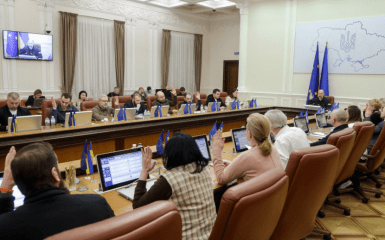The Cabinet of Ministers approved the image of the "Made in Ukraine" trademark by Resolution No. 197, dated Feb. 23, 2023.
What is known about the new "Made in Ukraine" trademark image?
The document was adopted to popularise Ukrainian-made goods, promoting increased domestic demand for the national producers' goods and raising the Ukrainian community's general awareness about the national producers.
Following the resolution, the Ministry of Economy must ensure that an application for state registration of a trademark is submitted in the prescribed manner, as well as develop and approve a technical standard (brand book) based on the specified image of the trademark.
All enterprises, institutions and organisations, regardless of the form of ownership, will be able to use this trademark free of charge.

The Ukrainian economy shows resilience during the war
In 2023, the economy of Ukraine, according to the UN, demonstrated a specific resistance to the consequences of the current war, especially in terms of electricity supply. In Ukraine, private consumption increased, and capital expenditures for reconstruction increased.
This is stated in the report on the World Economic Situation and Prospects 2024, prepared by the United Nations Department of Economic and Social Affairs (DESA).
According to the report, last year, Ukraine's economy demonstrated a certain resilience to the consequences of the current war, especially in terms of electricity supply.
This year there is a slight improvement, but it is an improvement on paper because the economy has already contracted and that is very painful, said Shantanu Mukherjee, Chief of Policy Analysis Branch in Division for DESA Sustainable Development.
He added that the slight improvement does not mean the economy has recovered from the pre-war period.
In Ukraine, private consumption increased, and capital expenditures for reconstruction increased. Agricultural production is lower than in the pre-war period, and the shipment of grain from Black Sea ports remains problematic after the withdrawal of the Russian Federation from the Black Sea Grain Initiative, the UN report notes.
In turn, alternative export routes face logistical difficulties due to the Russian shelling of ports on the Danube.
Temporary restrictions imposed by the EU in the summer on grain imports from Ukraine to five countries in the region, and later individual restrictions imposed by Hungary, Poland and Slovakia, also affected rail and road transport.
More on the topic
- Category
- Economics
- Publication date
- Додати до обраного
- Category
- Technology
- Publication date
- Додати до обраного
- Category
- Ukraine
- Publication date
- Додати до обраного




